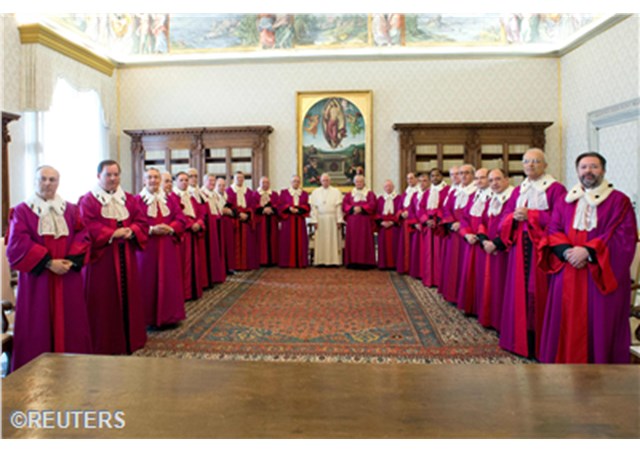
What the marriage law reforms do, and what they don't do

(Vatican Radio) Pope Francis this week issued two major documents reforming the judicial system of the Catholic Church in the areas of the Church’s marriage law. The Holy Father introduced the reforms by means of two Apostolic Letters given motu proprio on Tuesday. Mitis Iudex Dominus Iesus – or “The Lord Jesus, Clement Judge” – reforms the Code of Canon Law (CIC) governing the Latin Church, while the other, Mitis et misericors Iesus or “Clement and merciful Jesus” – reforms the Code of Canon Law for Oriental Churches (CCEO).
Ordinary Professor of Canon Law at the Pontifical Gregorian University, Fr. James J. Conn, SJ, explained to Vatican Radio that three specific changes especially address the question of speediness in processing cases involving an accusation of marital nullity: the removal of the need for a twofold conforming sentence from both the court of first instance and then from the appellate court, meaning that a single trial in the first instance will be considered sufficient for persons, whose presumed marriage has been declared null, to enter into new marriages under Church law (or to have the unions they have contracted under civil law in the meantime be recognized by the Church); the introduction of the possibility for a single first instance trial judge to be stably established (so as to ease the burden on court systems in dioceses lacking in trained personnel); the creation of an expedited trial process (processus brevior) for certain cases, to be judged directly by the local Bishop, in which the evidence of nullity is abundant, and both parties are firmly convinced their union was null. “[The processus brevior especially] reflects Pope Francis’s commitment to sharing responsibility with the diocesan bishops around the world,” he said.
Prof Conn, SJ, went on to explain that – contrary to speculation and even some reporting in both secular media and Church circles – the reforms constitute no change in the Church’s understanding of the nature and fundamental structure of marriage, nor do they alter the basic purpose and scope of the Church’s judicial system. “[The reform] doesn’t change the Church’s teaching on the indissolubility of marriage,” said Prof. Conn, SJ. “It doesn’t change the standard by which nullity is judged, nor does it change the presumption of validity, so, the nullity of marriage [still] has to be proved.”
Click below to hear our extended conversation with Fr. James J. Conn, SJ, Ordinary Professor of Canon Law at the Pontifical Gregorian University
| All the contents on this site are copyrighted ©. |


